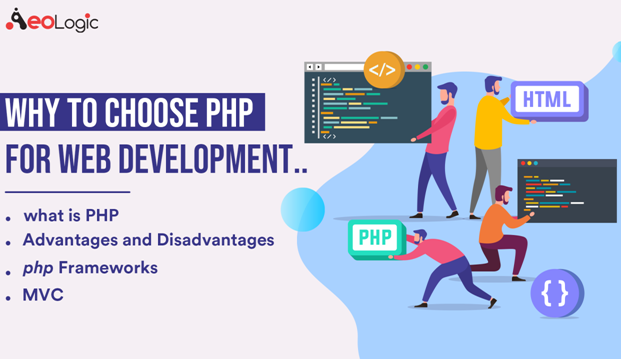How Big Data Can Improve Manufacturing Efficiency
With the growth of technology and services, huge amount of data is generated every second. This produced data are structured, semi-structured and unstructured. We can use these data for our business goals and benefits. Big data analysis is not specific to one industry, it can …
Why to Choose PHP for Web Development ?
PHP started out as a small open source project that evolved as more and more people found out how useful it was. Rasmus Lerdorf unleashed the first version of PHP way back in 1994. What is PHP? PHP is an acronym for “PHP: Hypertext Preprocessor” …
The Use of Big Data In Manufacturing Industry
Approximately 40 exabytes of data is generated every month by a single smartphone user that could be in the form of texts, phone calls, emails, photos, video searches, and music. Imagine this number gets multiplied by 3.5 billion smartphone users, that’s a lot of numbers for …
How Artificial Intelligence Is Improving Airline Industry
Nowadays airlines want to be consumer-centric and improve the way to communicate with their consumers. Airlines are aiming to give astonishing experiences to its passengers at every touchpoint starting from making an inquiry to the departure of the flight, handling all the queries passengers have …
How Cloud Technology is Beneficial for App Development?
Developments keep happening in the digital landscape, but cloud technologies are the ones that evolve instantly and the pandemic has just expedited this by many folds. From March 2020 until now, i.e. November 2020, nearly every company in the world or at least 90% of …
How Cloud Technology is Transforming the Healthcare Industry
The healthcare industry, with the largest number of legacy systems combined with the amount of highly sensitive and personal information, becomes one of the most challenging ones to transform. Many governments all over the world, face numerous issues in their quest for digitizing healthcare services. …
How Top Technology Trends Impact Web Development
In 2020 it was recorded that the internet has at least 200 Million websites and 1.8 Billion web applications to date. Understandability, with the disruptive revolution in play (thanks to the pandemic), this number might multiply by 4x the coming year. This means, that the …
Why Cybersecurity Has Become Indispensable for Automotive Industry
With constantly evolving smart technologies in the world, the automotive industry has witnessed considerable technological changes. These smart advanced technologies have been integrated among themselves, enabling more safer, convenient, and cost-effective solutions. Today, the automotive industry is majorly driven by consumer preferences and innovations. The …
Cybersecurity in Banking and Financial Sectors
Cybersecurity is not just a technology but is the ultimate jurisdiction for survival on the internet. The technology acts as a shield for every business and helps them conduct their operations online and offline, both safely and securely. Although the tech is important for every …











}})
